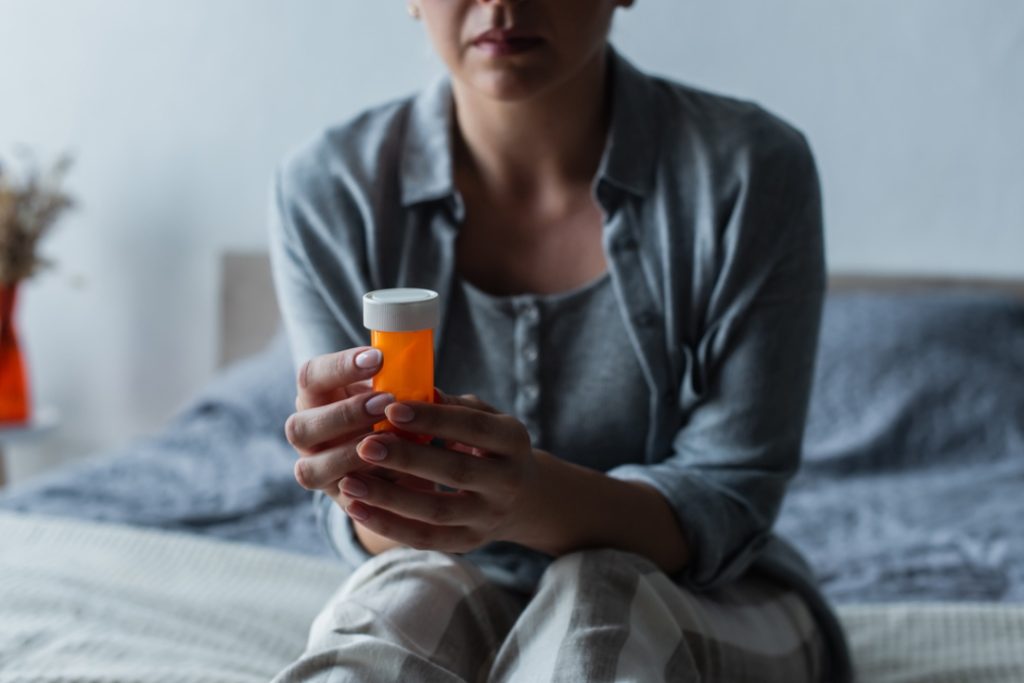How Long Does Postpartum Depression Last? A Comprehensive Guide for New Mothers and Families
By Elite Psychiatry | May 30, 2025
Postpartum depression is a form of clinical depression that occurs after childbirth. It affects not only the mother’s emotional well-being but also her physical health, relationships, and ability to care for her newborn. Unlike the short-lived “baby blues” that affect up to 80% of new mothers, PPD is more severe and longer-lasting.
Symptoms of Postpartum Depression
Common symptoms include:
- Persistent sadness or emptiness
- Feelings of hopelessness or worthlessness
- Frequent crying or tearfulness
- Loss of interest in activities
- Fatigue or low energy
- Difficulty concentrating
- Sleep disturbances (too much or too little)
- Appetite changes
- Difficulty bonding with the baby
- Anxiety or panic attacks
- Intrusive thoughts or fear of harming oneself or the baby
If these symptoms last more than two weeks or worsen over time, it may indicate PPD rather than normal postpartum adjustment.
How Long Does Postpartum Depression Last?
Typical Duration of PPD
There is no one-size-fits-all answer. The duration of PPD is influenced by a range of factors, including individual health history, hormonal changes, life circumstances, and access to care.
- For many women who receive prompt treatment, PPD may resolve within 3 to 6 months.
- In cases where treatment is delayed or symptoms are severe, recovery may take 12 months or longer.
- A small percentage of women may develop chronic depression that persists beyond the postpartum period, especially if left untreated.
What Research Says
Studies show that 25% to 50% of women with PPD continue to experience symptoms beyond the first year. A longitudinal study published in Harvard Review of Psychiatry found that some mothers still showed signs of depression up to three years postpartum, particularly when early symptoms were overlooked.
When Do Symptoms of PPD Typically Begin?
Postpartum depression can develop at various times after delivery, which can make it harder to detect.
1. Within the First Few Weeks
This is the most common onset window. Symptoms often appear within the first 4 to 6 weeks after childbirth. Hormonal fluctuations, sleep deprivation, and physical recovery play a big role during this stage.
2. Late-Onset PPD (Months Later)
For some women, symptoms appear several months postpartum—especially after returning to work, weaning, or facing new stressors. Late-onset PPD may be misinterpreted as general stress or burnout, delaying diagnosis and treatment.
3. During Pregnancy (Antenatal Depression)
In some cases, women start experiencing depressive symptoms during pregnancy, which then extend into the postpartum period. This is known as antenatal depression and is a strong predictor of postpartum depression.
Factors That Influence the Duration of Postpartum Depression
Understanding what affects the duration of PPD can help mothers and their families take proactive steps toward recovery.
1. Severity of Symptoms
Women with mild symptoms—such as mood swings or tearfulness—may recover more quickly with minimal intervention. On the other hand, severe depression, especially when accompanied by suicidal ideation, tends to take longer to resolve and requires more intensive support.
2. Timeliness of Diagnosis and Intervention
Early detection often leads to faster recovery. Women who seek help within the first few weeks of symptoms tend to have better outcomes than those who delay treatment for months. Unfortunately, stigma or lack of awareness often causes delays in seeking help.
3. Availability and Quality of Support Systems
A supportive partner, family, and community can significantly shorten the duration of PPD. Practical support (like help with chores or childcare), emotional validation, and encouragement to seek treatment can ease the burden.
Conversely, isolation, relationship stress, financial hardship, or cultural pressures can prolong recovery.
4. Underlying Mental Health History
Women with a personal or family history of depression, anxiety, or other mental health disorders are more prone to experiencing prolonged PPD. Prior mental health issues can complicate recovery and may require a more tailored treatment plan.
5. Physical Health and Hormonal Recovery
The body undergoes massive changes postpartum, from hormonal shifts to physical recovery. Conditions like thyroid dysfunction, anemia, or chronic sleep deprivation can contribute to or exacerbate depressive symptoms.
Treatment Options That Can Shorten Recovery
Early and consistent treatment plays a pivotal role in the duration of postpartum depression. Combining various approaches often yields the best outcomes.
1. Psychotherapy and Counseling
Therapy is the frontline treatment for PPD. Common methods include:
- Cognitive Behavioral Therapy (CBT): Helps identify and change negative thought patterns.
- Interpersonal Therapy (IPT): Focuses on improving relationships and social functioning.
- Dialectical Behavior Therapy (DBT): Useful for managing intense emotions and building coping skills.
Talking to a licensed therapist—especially one experienced with maternal mental health—can significantly accelerate healing.
2. Medications
Antidepressants, particularly SSRIs (Selective Serotonin Reuptake Inhibitors) such as sertraline or fluoxetine, are often prescribed. These medications can help regulate mood and anxiety. Many are considered safe during breastfeeding, but always consult your doctor before starting medication.
3. Support Groups
Joining a support group, either in-person or online, connects mothers with shared experiences. This peer validation can combat feelings of shame, loneliness, or guilt and foster resilience.
4. Holistic and Lifestyle Approaches
Though not a replacement for professional care, these can enhance recovery:
- Exercise: Even light activity like walking boosts endorphins.
- Healthy diet: Foods rich in omega-3s, iron, and B vitamins support mood.
- Sleep hygiene: Prioritizing rest, even in short stretches, can improve mood stability.
- Mindfulness and meditation: Techniques such as deep breathing, journaling, and guided imagery reduce anxiety and promote mental clarity.
Signs of Improvement: How to Know You’re Getting Better
Recovery isn’t linear. There may be good days and setbacks. However, consistent progress often includes:
- Increased energy and motivation
- Improved sleep and appetite
- Greater interest in daily activities
- Feeling more emotionally connected to your baby
- Decreased crying and irritability
- Return of hope and optimism
Tracking progress with a journal or through regular check-ins with a therapist can help women see how far they’ve come.
When to Seek Professional Help
Seek immediate help if you:
- Feel hopeless, overwhelmed, or emotionally numb most of the time
- Struggle to care for yourself or your baby
- Have thoughts of self-harm or harming your baby
- Experience hallucinations or paranoia
Don’t wait for symptoms to get worse. The earlier you seek help, the sooner you can start healing.
Postpartum Depression vs. Postpartum Psychosis
While postpartum depression is more common, postpartum psychosis is a rare but severe psychiatric emergency.
Key Differences:
| Feature | Postpartum Depression | Postpartum Psychosis |
| Onset | Days to weeks postpartum | Usually within the first 2 weeks |
| Symptoms | Sadness, fatigue, guilt | Hallucinations, delusions, mania |
| Risk Level | Moderate | High (psychiatric emergency) |
| Treatment | Therapy, meds, support | Hospitalization, antipsychotics |
If you suspect postpartum psychosis, seek emergency care immediately.
Long-Term Outlook and Relapse Prevention
Many women who recover from postpartum depression go on to live healthy, fulfilling lives. However, relapse is possible, especially during future pregnancies or high-stress periods.
To Reduce Risk of Recurrence:
- Maintain regular mental health check-ins
- Continue therapy even after symptoms improve
- Develop a postpartum care plan before future pregnancies
- Lean on your support system
- Avoid isolation and practice self-care regularly
How to Support a Loved One With Postpartum Depression
Support from partners, family, and friends can make a profound difference.
What You Can Do:
- Check in regularly—ask how they’re feeling and truly listen
- Help with practical needs like cooking, cleaning, or babysitting
- Encourage professional help if symptoms persist
- Avoid judgment or toxic positivity (e.g., “You should be grateful”)
- Be patient and understanding—recovery takes time
Remember, your compassion and presence might be the lifeline she needs.
Elite Psychiatry Center Serving the Hall Lake Community and Beyond in Sugar Land
Elite Psychiatry Center is dedicated to serving the diverse needs of the local community of Sugar Land, including individuals residing in neighborhoods like Hall Lake. With its convenient location near landmarks such as the Faith Sugar Land and major intersections like N Hall Dr & Borden St.. (coordinates: 29.608756108029596, -95.63191309999999), we offer Cigna Insurance Psychiatrist Sugar Land services.
Get Cigna Insurance Psychiatrist Sugar Land Services at Hall Lake
Navigate from Hall Lake to Elite Psychiatry Center Now
Final Thoughts:
So, how long does postpartum depression last? There’s no universal timeline—but with timely intervention, compassionate support, and proper care, most women recover and go on to thrive as mothers. PPD is not a character flaw or a parenting failure. It’s a medical condition that deserves attention, understanding, and respect. If you or someone you love is struggling, don’t hesitate to seek help. Healing is possible. You’re not alone—and you don’t have to go through it alone.
Frequently Asked Questions (FAQs):
1. How long does postpartum depression usually last?
Postpartum depression can last anywhere from a few weeks to over a year, depending on the severity, early intervention, and support systems. With treatment, many women begin to feel better within 3 to 6 months.
2. Can postpartum depression go away on its own?
While some mild cases may resolve naturally, most women benefit from professional treatment. Without intervention, postpartum depression may worsen or become chronic.
3. What’s the difference between baby blues and postpartum depression?
Baby blues are short-lived mood swings lasting a few days to two weeks. Postpartum depression is more intense and long-lasting, with symptoms like persistent sadness, anxiety, and fatigue.
4. When should I seek help for postpartum depression?
If symptoms last more than two weeks, interfere with daily life, or include thoughts of self-harm or harming your baby, seek professional help immediately.
5. What treatments are available for postpartum depression?
Common treatments include therapy (CBT or IPT), medications like SSRIs, support groups, and lifestyle changes such as improved sleep, nutrition, and exercise.
“From mental health heredity to fostering understanding and support, our guidance spans generations. We’re here to assist with every aspect of mental health.”
Or Call Us Now!






